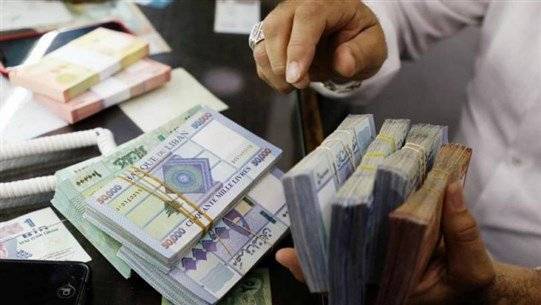As the Lebanese pound continues to decline against the dollar and the "hemorrhage" of purchasing power for salaries and wages worsens—having lost about 95% of its value so far—the 2022 budget has been approved and has become a reality. Among the most notable aspects was the salary increase for civil and military public sector employees, retirees, and contractors, part of which will be funded by adding new fees and taxes. What are the implications of these decisions? Do they meet the requirements and conditions of the International Monetary Fund (IMF)?
The ruling powers are trying to do everything they can to comply with the conditions and requirements imposed by the IMF. Undoubtedly, its members believe that the decisions passed in the 2022 budget are an "achievement" deserving of appreciation. However, in reality, these decisions are merely a "patch-up," akin to giving "morphine injections" to a cancer patient; they relieve pain temporarily but do not eliminate the underlying disease.
#### Key Decisions of the 2022 Budget
Thus, in the 2022 budget, it starts with "increasing the salaries of civil and military public sector employees, retirees, and all workers in the state by an average of three times the basic salary, with an increase not less than 5 million Lebanese pounds and not exceeding 12 million pounds. For example, if the basic salary of an employee is 5 million pounds, it will become 15 million pounds. Here, the increase was 10 million pounds, thus not exceeding the 12 million pounds limit. However, if the basic salary of an employee is 10 million pounds, it will not become 30 million; rather, the increase will be capped at 12 million pounds, resulting in a new basic salary of 22 million pounds, not 30 million."
The budget also states, "raising the customs dollar from 1507.5 pounds to 15,000 pounds, and other fees, most notably in Article 69 concerning an increase of 3% on goods subject to value-added tax, and Article 72, which approved a 10% increase on all imported items that have local equivalents available in sufficient quantities."
#### Wage Correction or Money Illusion?
"Wage correction, as termed in common parlance, is called a money illusion in economic terms," says Dr. Layal Mansour, a specialist in monetary economics. "This is because we are misleading the public into thinking they are receiving salary and wage increases during a collapse, not through industrial and commercial prosperity, an increase in exports, or through gifts and assistance to Lebanon, but by printing more Lebanese currency, which will lead to inflation surpassing the wage increases. The authorities are trying to raise fees and taxes to cover the salaries, but it will not be enough and will inevitably lead to printing more national currency."
Mansour emphasized that "raising salaries and wages is not the appropriate solution amid the collapse, especially as the purchasing power of citizens declines with the national currency's devaluation. There should be a distinction between two types of inflation:
- The first results from prosperity and economic growth in the country, so salary increases in this case are justified.
- The second results from economic collapse, where the collapse must first be halted before stimulating the economy."
#### The Right Decision at the Wrong Time!
Regarding the approved budget's 10% increase on imported items with local production, Mansour believes that "one of the most important steps taken to protect local industries on paper is to impose taxes and fees on imported goods. However, in real life, random decisions like the 10% increase cannot be made without ensuring a healthy environment for citizens and an appropriate economic foundation for industrial, commercial, and investment deals, facilitating export operations, and securing necessary infrastructure like electricity to reduce production costs and thereby enhance competitiveness. Therefore, this right decision, if not made at the right time, becomes a mistake."
#### Does the Budget Satisfy the IMF?
The dilemma revolves around the IMF's stance on this budget, especially as it stresses that Lebanon will not receive any financial support unless the government undertakes necessary reforms. "Lebanon is trying to appease the IMF," says Mansour, "but I doubt they will agree. What achievements have been made by Lebanon? Are they aligned with the conditions set by the World Bank for reform? The answer is definitely no. There is a significant budget deficit, and I do not believe that the IMF will approve this deficit. On the other hand, the World Bank has demanded austerity measures but in a well-thought-out manner. Additionally, Lebanon has not passed the capital control law, and the disagreement over the law amending bank secrecy, which was approved by parliament and returned by the president, continues."
How long will decisions in Lebanon continue to be made randomly without regard for the interests of citizens and the economy? The repercussions of these decisions will only lead to further inflation and collapse, and instead of starting from scratch to address the root problem in Lebanon—the collapse—they are putting plans in place and making stimulating decisions that are not timely.




